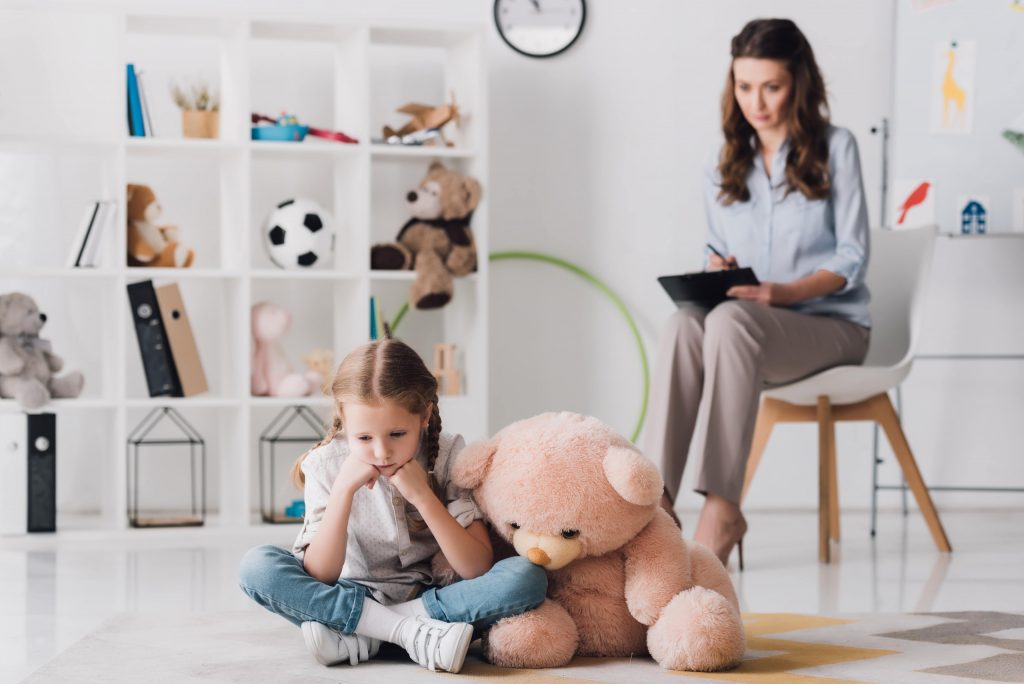
The mental development of a kid determines their total growth most of the time; it also significantly influences their social skills, emotional state, and learning capacity. From the initial stages of infancy to the toddler and preschool years, every developmental phase is unique in terms of significant events influencing a child’s cognitive ability and social interactions. Understanding these phases—such as basic reflexes in newborns, language acquisition in toddlers, and abstract thinking in preschoolers—helps parents and carers to create supporting environments suitable for their unique needs. By accepting the variations in developmental timetables, parents may help their children develop resilience and confidence, therefore ensuring that they feel secure while they explore their surroundings. A loving environment that values unique growth patterns not only improves a child’s potential but also supports good emotional and social development, therefore laying a strong basis for lifetime learning and well-being.
The Early Years: Building Cognitive Foundations
A child’s cognitive capacity is much shaped by mental development milestones throughout infancy and early life. Early on in life, newborns cooze and subsequently babble before developing their first words, therefore beginning their language learning. Children usually begin to mix words to create rudimentary phrases by toddlerhood, therefore quickly increasing their vocabulary. Simple conversations with your kid during the day, descriptions of what you see, or group singing of songs might all help you encourage this expansion. Talking with them helps them pick up the rhythm and sounds of language even if they cannot yet react completely.
Early years also begin to reveal abilities for addressing problems. Youngsters choose knowledge from their surroundings, figure out how things go, and overcome obstacles in play. Their capacity to solve problems may be much improved by simple tasks as building blocks, shape sorting, or puzzle games. Parents may engage in interactive activities requiring thought and reasoning, like as hide-and-seek or basic treasure hunts, therefore promoting cognitive development. These light-hearted exchanges improve critical thinking and memory as well as provide happy bonding events that inspire a passion of learning.

Emotional Growth and Social Connections
Development of young children depends critically on emotional intelligence and social skills. Building good connections depends on kids knowing their emotions and the emotions of others, which emotional intelligence allows them to grasp. Conversations regarding emotions let parents help this. As you read a narrative together, for example, probe with questions such, “How do you think that character feels?” This helps children to develop their empathy and consider feelings. Furthermore, modelling emotional reactions in daily events helps youngsters to communicate their emotions in the right way.
Important abilities for children to acquire additionally include cooperation and dispute resolution. Parents may help their children develop these abilities by supporting cooperation in games or activities requiring group effort. Disagreements need for leading youngsters through the peaceful conflict-resolving process. Parents may intervene to let their children have reach and communicate their emotions. Parents may help their children to develop their ability for empathy, collaboration, and problem-solving by establishing a loving and inclusive atmosphere at home, therefore laying the groundwork for good social interactions as they mature.
Supporting Learning Through Exploration and Creativity
Exploration and creative pursuits like painting and storytelling greatly affect children’s cognitive and emotional development. These exercises assist children to communicate their thoughts and emotions in original ways, therefore facilitating their processing of their experiences. When a young child paints or draws, for example, they not only develop their fine motor skills but also their critical thinking and problem-solving capacity as they decide how to artistically represent their thoughts. In the same line, story helps children explore several points of view and develop empathy by adopting the role of someone else, therefore stimulating their imagination and creativity.
Fun and interesting activities at home may be readily included by parents to pique interest. Could you maybe arrange a little art studio in your living room? Give your kid some crayons, markers, and paper; let them create whatsoever comes to mind—no evaluation, just creation! One further concept is to schedule storytelling events wherein participants alternately share a narrative. Maybe you begin with a phrase, then your youngster contributes to create an imaginative story together. These easy exercises provide a firm basis for children’s emotional and cognitive development by helping them feel secure in expressing themselves and therefore promote a feeling of happiness and calm.
Challenges and How to Address Them
Early life may present some typical problems with mental development including delayed milestones in language, memory, and problem-solving ability as well as concentration issues. Children who struggle to communicate themselves or follow directions, for instance, may cause irritation for their parents as well as for themselves. Another problem might be a youngster who exhibits symptoms of nervousness or difficulty socialising with classmates finding it difficult to start play or successfully interact. Early on recognition of these difficulties is vital as timely help greatly influences a child’s growth.
If your child is frequently failing to attain their developmental objectives or plainly suffering, see a professional. This might be a conversation with your doctor or with a child development specialist certified to provide suggestions suitable for your child’s requirement. Moreover, creating a caring surroundings at home aids development. Try to create a calm environment full of fascinating activities like reading aloud, playing games, or outdoor discovery. Helping your child grow also means supporting honest communication, recognising their efforts, and gently directing their educational process. Remember, every kid grows at their own speed; hence, your help might be rather important in their path.
Essential Advice for Daily Parenting
Encouragement of mental growth in children is mostly about building a loving surroundings where they feel encouraged and safe. Establishing regular habits is one smart approach to do this. Children flourish on structure, hence a consistent meal, homework, and sleep plan will help them feel more relaxed. Routines provide children predictability, which helps them to negotiate their daily life and grasp expectations of them. Moreover, knowing what is ahead allows youngsters to relax and focus on their task.
Encouragement of mental development also rely much on honest communication. Find out from your child regularly about their daily activities, feelings, and any challenges they are facing. Children who practice listening without judging will be able to see their emotions and thoughts as valid and important. This exercise helps you to enhance your relationship as well as boost their self-confidence in expression. Recall that throughout this procedure patience is really crucial. Children will have ups and downs and may not always express their emotions precisely. Calm and encouraging behaviour can help you lead children through difficult circumstances and assist in their learning to control their emotions.

Conclusion
Fostering your child’s general welfare and progress depends first on your knowledge and support of their mental development as a parent. You are your child’s first teacher and best advocate as well as a carer; you play a big part in helping them grow emotionally, socially, and cognitively. You help your kid to become robust and self-regulated by actively immersing them, creating tight ties, and offering direction throughout their emotional highs and lows. Accept this huge responsibility with purpose and will; your influence will help them to be happy, successful, and to grow mentally.





